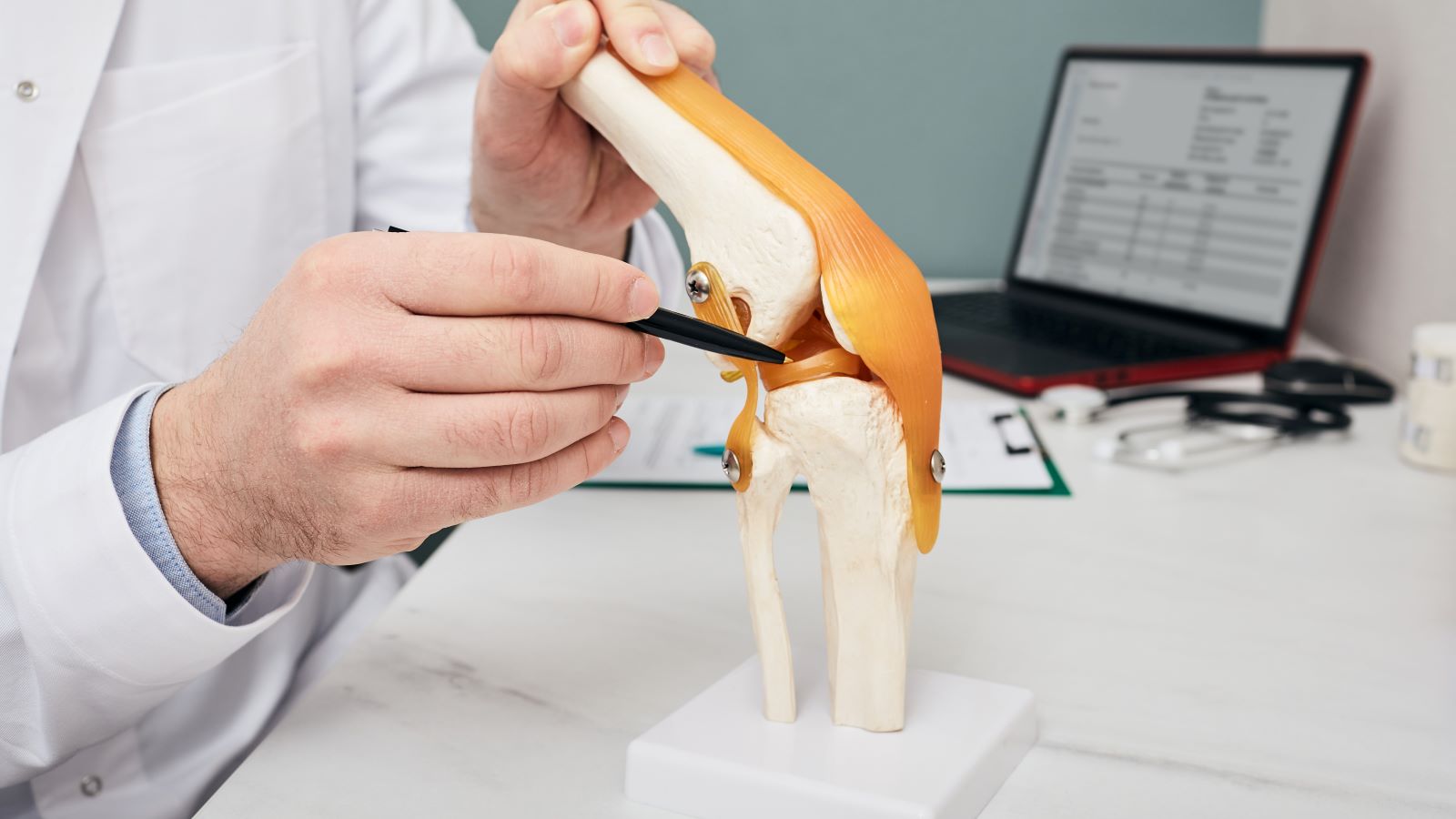<< Back
I’ve Torn My Meniscus. Now What?

August 23, 2023
Twist, turn, pivot — pain. Maybe you were driving down the basketball court. Maybe you just took an awkward step. Either way, your knee is now swollen, stiff and hurting. Which means you may have torn your meniscus.
Now what?
How do I know if it’s a torn meniscus or something else?
“Injury to the meniscus is very common in athletes, as well as the older population,” says orthopedic surgeon J. Kristopher Ware, MD, from Hartford HealthCare’s Bone & Joint Institute. In fact, about 1 million Americans tear their meniscus every year.
But the symptoms are similar to many other conditions, like a simple knee sprain.
The only way to find out what’s what — and get you on the correct road to recovery — is to see an orthopedic expert. They’ll do a physical exam, and sometimes, order an X-ray or MRI.
> 5 Lifestyle Changes to Make Before Your Hip or Knee Replacement
I can still walk on it. Should I?
Now is not the time for heroics.
There are different types of meniscus tears, with names like “bucket handle” (bad), “unstable peripheral” (less bad) and “degenerative” (caused by the normal effects of aging). All create contact pressure within your knee joint when you walk.
Depending on your injury, that could up your risk of arthritis down the road, leading to long-term pain and mobility issues.
In other words: Stay off that knee until you talk to your doctor.
> Want more health news? Text StartHere to 85209 to sign up for text alerts
Does a torn meniscus always mean surgery?
Not necessarily. Your treatment will depend on the type of tear, and the general state of your knee.
Small tear to an otherwise healthy knee? You may be able to get away with physical therapy. A mild tear caused by the normal effects of aging? Ditto.
“For certain types of meniscus tears, conservative treatment can be just as effective as surgery,” says Dr. Ware. “Patients are often surprised when I recommend a trial of physical therapy and anti-inflammatories before considering surgery.”
Then again, certain types of tears and knees tend to lead straight to the operating room — like the dreaded “flipped bucket handle” tear and other large unstable tears, which usually require urgent surgery.
What if I do need surgery?
You’re in good company. “Meniscus surgery is one of the most common procedures performed by orthopedic surgeons. With modern techniques, it can be performed with a minimally invasive approach,” says Dr. Ware.
It just takes a couple tiny incisions in your knee, less than a half-inch apiece. You’ll go home the same day. With the help of a physical therapist, you can return to most of your normal activities within six to eight weeks, and to heavy work or sports a few months after that.
Before you know it, you’ll be back on that court, field or track — or wherever you and your knees are required.